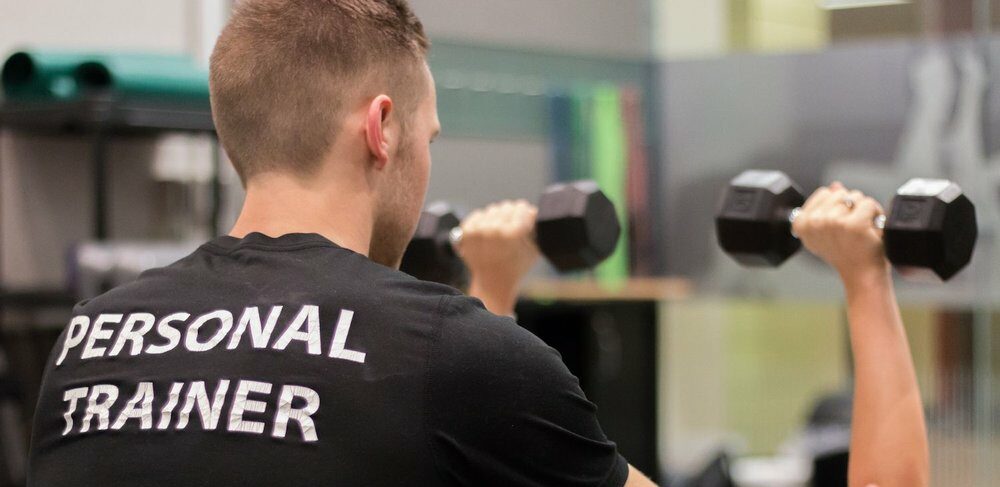Hiring a personal trainer is something many of us do to give ourselves the push we need to get fit and healthy.
It’s not always easy to find the motivation to put on a pair of gym shoes and conduct your own workout routine in the gym.
The idea of going to a gym with others can be daunting when you’ve not been for a while.
So, relying on a personal trainer to encourage you to switch from the TV remote to a healthier habit seems like the perfect solution.
However, have you ever considered the role a life coach could play instead?
While personal trainers do wonders for our physical health in the gym, what you do outside the gym is an area their training doesn’t cover.
And we all know that health isn’t just about physical fitness. This is where life coaches come into play.
Here’s how the life coach phenomenon is expanding the fitness industry and why staying in shape isn’t the only health goal we should prioritise nowadays.
The difference between personal trainers and life coaches
Although it’s often assumed that personal trainers and life coaches do the same job, there are a few major differences between their job roles.
For personal trainers, their main responsibility is to inspire you to follow a healthy diet and exercise regime.
To help with this, they conduct a personalized one-to-one assessment of your strengths and weaknesses and consider the fitness goals you want to achieve.
Using this, a training program is created. Whether your goal is to lose weight, gain more muscle, or to improve general fitness levels, a personal trainer will work with you to help achieve your goal in the most effective way.
As for life coaches, their job is to help you with your lifestyle goals and problems outside the gym.
Other than physical health challenges, a life coach can help with other problems too.
These can include employment issues, breaking bad habits, or a lack of everyday routine and motivation.
Another key difference between a life coach and a personal trainer is their approach to the role.
Personal trainers have a motivational and overall positive attitude towards helping you achieve your goals through the training program you follow.
A life coach’s role, however, is to ask questions and challenge thoughts.
This helps their client discover their own potential and change their outlook on a particular situation for themselves.
Furthermore, personal trainers tend to set short-term goals, whereas life coaching is a long-term, ongoing role.
So, why use a life coach?
Nowadays, people no longer only want an in-shape body and healthy diet – they want a good life overall. This consists of much more than just physical health.
A life coach can also help you with mental health, creating a healthy daily routine and a consistent sleeping pattern, and adopting an overall positive outlook to life.
Even the clothes you wear can impact your mood without you realizing it.
For example, new studies have identified a link between our mood and what we wear.
So, if you tend to wear the same old dress shirts to work every day, understanding how to break this tendency can drastically improve your daily mood. This is a small change that can make a big impact.
Issues surrounding mental health and the importance of noticing signs of poor mental states has never been more pivotal than in recent years.
A life coach could play advocate to supporting both your physical and mental wellbeing.
Although it’s important to recognise and research which type of mental health professional is best suited for your personal struggles, for many people, a life coach could be the answer they’re looking for.
How a life coach can help you
Other than helping you recognize what your goals are and figure out the steps you need to take to achieve them, there are many more benefits to having a life coach that you might not be aware of.
One benefit is that they will help you take accountability for your decisions. When it comes to personal growth, the only person that can make this happen is yourself.
Life coaches empower you to take accountability for your commitments and get out of the habit of making excuses when you don’t commit to them.
Another advantage of having a life coach is that they help you appreciate what’s good in your life and understand what’s bad.
Whether it’s some unnecessary drama from certain people in your life that is causing it to be toxic, a job that is overworking you, or even a bad habit that is affecting you in more ways than you might think, life coaches can help you distinguish the good from the bad and help you think more clearly.
As for personal experiences and past events, these can drastically take a toll on our frame of mind.
When it comes to ‘moving on’ from situations, this is often easier said than done, especially when you feel you’re doing it alone.
A life coach can not only help you face your issues rather than pushing them away, but they can also make you question how you can move on and continue to live your life without the emotional baggage from your past weighing you down every day.
There is no right or wrong answer when it comes to choosing a personal trainer or a life coach, but which one you opt for can make the world of difference depending on your physical and mental needs.
So, before you make the decision, investigate what each role can offer and the difference they could make to your life.





